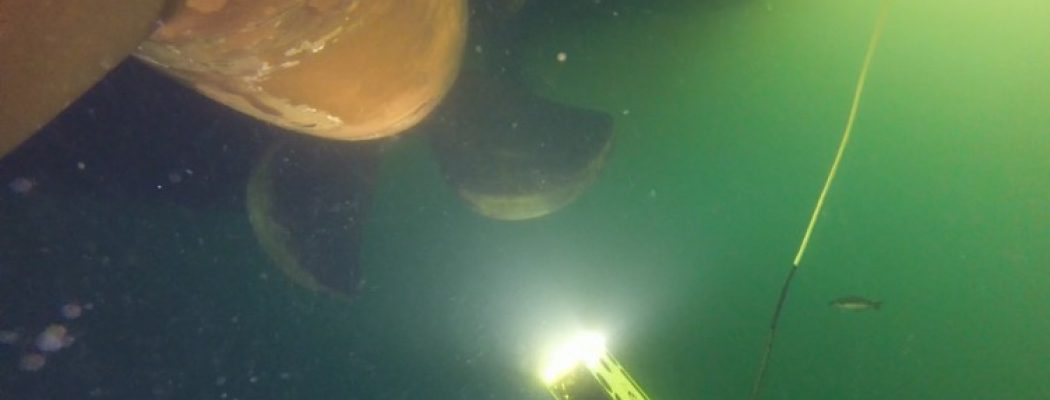Enhancing Efficiency and Performance - The Benefits of Condition-Based Cleaning for Propellers
Maintaining clean propellers is crucial for optimal vessel performance and fuel efficiency. Traditional scheduled cleaning methods may not always align with the varying growth rate of marine fouling throughout the year. That’s where condition-based cleaning comes into play.

By combining visual inspections, fuel consumption monitoring, and innovative technologies, such as VUVI in collaboration with Maress from VPS, ship operators can determine precisely when propellers require cleaning, maximizing effectiveness while minimizing costs.
Condition-based cleaning offers a significant advantage over scheduled cleaning methods. By monitoring the growth rate of marine fouling through visual inspections, ship operators can identify the optimal time for cleaning based on the actual condition of the propeller. This tailored approach ensures that cleaning is performed precisely when needed, enhancing vessel efficiency and reducing fuel consumption.
Improved efficiency is one of the primary benefits of condition-based propeller cleaning. When propellers are fouled, they experience increased drag, resulting in reduced vessel performance. By maintaining clean propellers, ship operators can minimize drag and optimize hydrodynamic efficiency, allowing vessels to operate at their maximum potential.
Condition-based cleaning also contributes to enhanced fuel consumption. Fouling on propellers increases resistance in the water, forcing engines to work harder and consume more fuel. Regular monitoring and cleaning of propellers based on their actual condition can significantly reduce fuel consumption, leading to cost savings and reduced environmental impact.
Another advantage of condition-based cleaning is the prevention of unnecessary maintenance. Scheduled cleaning at fixed intervals may result in cleaning propellers that do not require immediate attention. By utilizing visual inspections and data analysis, ship operators can avoid premature cleaning operations, optimizing the use of resources and minimizing costs.
Condition-based cleaning of propellers offers numerous benefits, including enhanced vessel efficiency, improved fuel consumption, and cost-effectiveness. By leveraging visual inspections, monitoring fuel consumption, and collaborating with technology providers, ship operators can determine the optimal time for propeller cleaning based on their actual condition. Embracing condition-based cleaning practices leads to a more sustainable and high-performance maritime industry.
Contact us today to learn more about how we can help you.
—————————–
For more information on VPS and Maress, please visit https://www.v-p-s.com/maress. Inquiries can be directed to VP Commercial Decarbonisation, Sindre S. Bornstein on sibo@v-p-s.com
